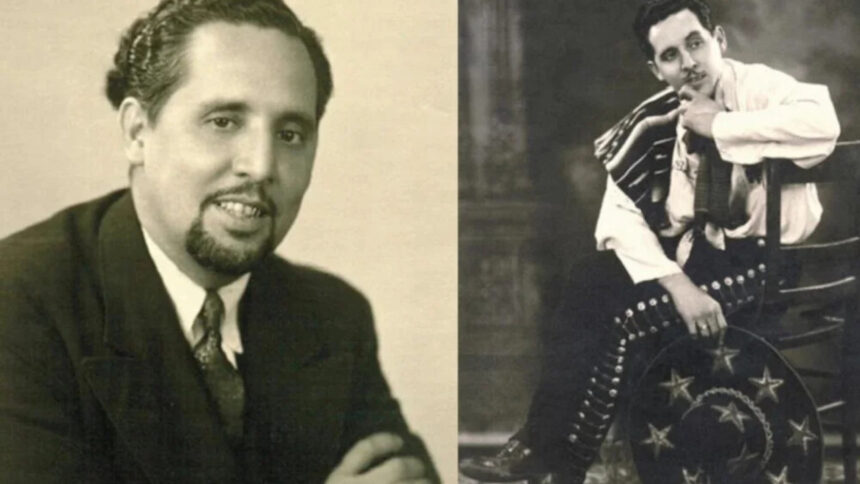Raoul A. Cortez, a name that resonates with significant contributions to Hispanic media and civil rights in the United States, remains a pivotal figure whose work continues to influence contemporary media landscapes. Born on October 17, 1905, in Villa de la Paz, San Luis Potosí, Mexico, Cortez’s journey to becoming a media mogul and civil rights advocate was shaped by his early experiences of discrimination and a deep-seated desire to uplift the Hispanic community. His legacy is a testament to his visionary approach and relentless determination to create platforms that would serve as a voice for the marginalized. This voice resonates with the Hispanic community to this day.
Early Life and Motivation: The Foundations of a Visionary
Raoul A. Cortez’s formative years in Texas were marked by the stark realities of living in a segregated society, where opportunities for Hispanics were severely limited. Growing up in Laredo, Texas, he was keenly aware of the socio-economic challenges faced by his community. These early experiences ignited a fiery passion within him to effect change, a passion that would later manifest in his groundbreaking work in media. Cortez’s youth laid the groundwork for his unwavering commitment to addressing the needs and concerns of the Hispanic community through media and advocacy.
KCOR-AM: The Birth of Hispanic Radio in the United States
In 1946, Raoul A. Cortez achieved a milestone that would forever change the landscape of American media. He founded KCOR-AM in San Antonio, Texas, the first full-time Spanish-language radio station in the United States. This was a revolutionary step, providing a dedicated platform for the Hispanic community at a time when mainstream media largely ignored their needs and voices. KCOR-AM offered a variety of programming, including news, music, educational content, and entertainment, all delivered in Spanish. The station quickly became a vital resource for the Hispanic community, offering entertainment, crucial information, and a sense of connection in a largely segregated society.
Challenges and Triumphs: Overcoming Obstacles in a Segregated Society
The establishment of KCOR-AM was not without its hurdles. Cortez faced significant financial and logistical challenges, including securing advertising revenue in an English-dominated media environment. However, his unwavering determination and leadership paid off. Cortez’s ability to overcome these obstacles and establish a successful Spanish-language radio station demonstrated his exceptional leadership and commitment to his community. His work with KCOR-AM set a precedent for future Spanish-language media in the United States, providing a substantial audience for such content and paving the way for other Hispanic media entrepreneurs.
KCOR-TV: Expanding into Spanish-Language Television
Building on the success of KCOR-AM, Raoul A. Cortez ventured into the realm of television. In 1955, he launched KCOR-TV, the first Spanish-language television station in the continental United States. This move was another pioneering effort that further solidified Cortez’s legacy as a media innovator. KCOR-TV offered a wide range of programming, including news, soap operas (telenovelas), sports, and variety shows, all in Spanish. This station provided culturally relevant content that resonated deeply with Hispanic viewers, offering them representation and visibility in a medium that had excluded mainly them until then.
Civil Rights Advocacy: Raoul A. Cortez’s Broader Impact
Raoul A. Cortez’s contributions extended far beyond the media. He was a fervent advocate for civil rights and worked tirelessly to improve the social and economic conditions of the Hispanic community. Cortez was actively involved with the League of United Latin American Citizens (LULAC), the oldest and most widely respected Hispanic civil rights organization in the United States. As the national president of LULAC, Cortez played a crucial role in significant civil rights cases, such as the fight against school segregation in Texas, mainly through the landmark Delgado v. Bastrop Independent School District case.
Cortez also played a crucial role in advocating for the rights of Mexican immigrant workers under the Bracero Program, which brought Mexican labourers to the United States to fill labour shortages during World War II. His work in this area highlighted his deep commitment to improving the lives of Hispanics, not just in the United States but also across the border, ensuring fair treatment and better working conditions for Mexican workers.
The Legacy of Raoul A. Cortez: A Lasting Influence
Raoul A. Cortez’s legacy is one of innovation, perseverance, and unwavering commitment to the Hispanic community. His pioneering work establishing KCOR-AM and KCOR-TV provided essential platforms for Spanish-speaking audiences, paving the way for the growth of Hispanic media in the United States. Beyond his media contributions, his advocacy work with LULAC and other organizations highlighted the importance of education, civic engagement, and equal opportunities for all.
Cortez’s contributions have been widely recognized. In 1984, he was posthumously inducted into the Texas Radio Hall of Fame, acknowledging his significant impact on the broadcasting industry. The city of San Antonio also honoured him by naming the Raoul A. Cortez Branch Library after him, ensuring his media and civil rights contributions were remembered and celebrated. This recognition is a testament to the profound impact of his work and a source of pride for the Hispanic community.
Conclusion: The Enduring Spirit of Raoul A. Cortez
Raoul A. Cortez’s life and work exemplify the enduring power of media to effect positive change and uplift communities. His visionary efforts laid the foundations for a thriving Hispanic media industry that continues to grow and evolve today. Cortez’s legacy is a historical footnote and a living influence that inspires new generations of media professionals, civil rights activists, and community leaders. His enduring spirit guides the future of Hispanic media and civil rights advocacy in the United States.
As we reflect on Raoul A. Cortez’s life, it is clear that his contributions to media and civil rights were monumental. His story is a powerful reminder of one individual’s impact in shaping a more inclusive and equitable society. The enduring spirit of Raoul A. Cortez continues to guide the future of Hispanic media and civil rights advocacy in the United States.
FAQs
Who was Raoul A. Cortez?
Raoul A. Cortez was a pioneering figure in Hispanic media and a civil rights advocate. He founded KCOR-AM, the first full-time Spanish-language radio station in the U.S., and KCOR-TV, the first Spanish-language television station.
What was Raoul A. Cortez’s contribution to media?
Cortez revolutionized American media by creating the first full-time Spanish-language radio and television stations, providing essential platforms for the Hispanic community.
How did Raoul A. Cortez contribute to civil rights?
Cortez was actively involved in the League of United Latin American Citizens (LULAC) and played a significant role in civil rights cases, such as fighting against school segregation in Texas and advocating for Mexican immigrant workers under the Bracero Program.
What is the legacy of Raoul A. Cortez?
Cortez’s legacy includes establishing Hispanic media outlets and his contributions to civil rights, which inspire and influence new generations.
How is Raoul A. Cortez remembered today?
Cortez is remembered through various honours, including his induction into the Texas Radio Hall of Fame and the naming of the Raoul A. Cortez Branch Library in San Antonio. His legacy lives on in the thriving Hispanic media industry and ongoing civil rights advocacy.
Also Read: Riley Strain Autopsy Report Reveals That He Consumed Alcohol and Drowned.







